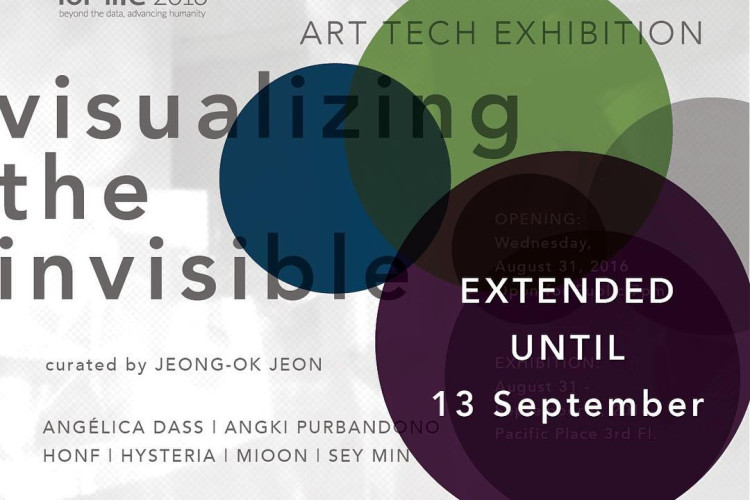Books and History with Jalan Surabaya’s H. Abdul Ghani
Dwiputri Pertiwi talks to Jalan Surabaya's H. Abdul Ghani
by Ken Jenie
















D
What year did you open your shop?
A
Before this market was made, I already sold books here. We would set up our own tents and then take them down again in the evening.
D
There were no permanent stalls back then?
A
Not yet. These stalls exist because we proposed it to Mr. Ali Sadikin, Jakarta’s governor at the time. But before then, we would set up tents in the morning, and pack up again in the evenings.
D
When did you start setting up your tents?
A
1970. But this market didn’t go into operation until 1973, and we finally got official permission in 1974.
D
This all happened because of the combined of you and the other sellers?
A
Yes, together with my friends, we made a formal request for a properly organized market to Mr. Ali Sadikin. Thank goodness he was kind a person and he allowed it. In the beginning, we only got permission to operate in this area, but we still had to use tents. After a while, setting up tents and taking them down again every day got too exhausting, so we made another request to make it all permanent. We said that Jakarta is the capital of the city, we wanted to make something more organized, instead of having all these independent sellers. We believed in the concept of “3E” – “Enak dilihat” (nice to look at), “Enak dipandang” (nice to gaze at), dan “Enak dirasakan”(nice to experience). We wanted to unite the market – until now. Mr. Sadikin made us promise to maintain the cleanliness and safety of the market. We told him that all goes without saying. The market’s cleanliness and safety will be guaranteed.
D
If Mr. Ali Sadikin wasn’t as flexible as he was, do you think your proposal would have been approved?
A
Well, I don’t know. You can never know. Back then, there weren’t that many sellers yet. We sold stuff in front of Pasar Jaya, which was built in 1956. Because not many people went there, we relocated to the front of the market. People started to come, and we sold a lot of different things, it was just really messy. We’re really grateful that Mr. Sadikin backed us up. We had to pay Rp. 75,000 to the local government, which, at the time, was a big amount. It was a rule that nobody could bend, but we did ask for some leniency. We then could pay five installments at Rp. 15,000 each time.
D
I see. Where did you get books?
A
Well, I really liked to read; history and culture.
D
Ah, so you enjoyed reading.
A
Yes, I really liked to learn about our (Indonesian) history. We are actually very rich in terms of culture and history. What purpose do we have, if we don’t even understand our own history? I suppose, I have a very nationalistic spirit. Don’t ask who I am or where I’m from. I’m an Indonesian.
D
At first, did you sell your own books?
A
Yes, at first I sold what I had. There weren’t many books, but after a while, “tukang gerobak” (street carter) would come and offer us books. Back then a lot of the parents could read Dutch, but the children understood nothing. Lots of books on our history were written in Dutch, eventually more and more people started to read in English.
Even now, I still take in pretty much every book that I’m offered. There are 20 people in Cikarang and another 20 in Karawang who look for books. I would gather all of their findings. There are so many more stored in my house – books on medicine, etc.
D
Wow. So you really did take in everything?
A
Yes, whatever we could take in, we would take in. The most popular books were those on culture; even if it were written in Dutch. Now, lots of those editions have been re-published. But there are also people who want original editions, ones that are still written in the old Indonesian spelling. They know that it’s real. Most people don’t know about what “Betawi” really means, or the history of Jakarta. But we know.
D
Do you actually have a selection process?
A
Yes. We take everything first and then we filter them. Whatever we’re not interested, we’d just throw or give away. We just buy them wholesale and then rummage through the books, newspapers, and magazines.
D
Who is usually interested in your books? What are the sorts of people who come to your store?
A
Generally, the people who come to my store are older. They buy Dutch books or old cookbooks. But the “History of Java” is very popular. Old books have a lot of pictures in them, like “Old Batavia”, a book from 1936 about Jakarta, Sunda Kelapa, and its old buildings. Most people usually look for old books.
D
Why do you think that is? Why do people look for old books?
A
I don’t know. I guess they want to know more about history. But I think what makes “old” books appealing is their originality. People look for original books; especially foreign customers.
D
Oh, so they look for the authenticity of the book.
A
Exactly, they could buy a newer version, but they want the authenticity.
Old books are stronger. Books nowadays fall apart easily. They’d fall and immediately get torn. Back then, books were so carefully sewn. They’re also bound in leather, so they last long. The newer ones, once they hit they ground they fall apart. The old books were sewn so they are sturdy. Also back then our printing was the best.
D
So there are a few who look for them?
A
A lot from Java. Whichever books on Indonesian provinces, we have it. We have the richest culture and language. Just imagine how many tribes there are. Javanese people have a Javanese accent and language. Sudanese people have Sudanese accent and language. While other countries don’t have this.
That’s why I am always prepared to help students in their studies. But I always tell them to make a positive contribution to our country after they graduate. The country is yours, not mine. It’s yours. I’m already old. I’m happy that I can still speak, and remember. I want to help while I can. People who are writing their thesis, or writing articles for magazines can feel free to use the material that are available at the store.
D
Are you planning to preserve this store?
A
Yes, as long as I can. My nephew and grandson can continue the business as well. The most important thing in this business is that we should never be afraid to not have our things sold.
D
Do you have customers every day?
A
Yes. I sell lots of different things as well, but most of the time, people come here for the books. Or different types magazines. Books of provinces and Indonesia as a whole, I have. All the cultural books are also here. History books are also being searched for even when they are still in Dutch. Language is not a problem.
D
What do you think are the downsides of the Internet?
A
Well the Internet is not tangible like a book. A lot of people use the Internet to look for books that they would then buy. People who have Internet connection might no have books. I have a friend in Bekasi, he has internet but no books. When he wants the books he has to come here.
Because the Internet and other forms of modern technology, we also end up losing a lot of things. Stamps, telephone booths, etc. I guess you can’t do anything about that. Nowadays, we can talk on the phone even when we’re sitting on the toilet.
D
So for every new thing, we also have to let go of other things.
A
Certainly.
D
But what if more and more people are turning to the Internet? What is the future of printed books?
A
Books will never disappear. Technology is very frail. Yes, it develops quickly, but it breaks just as quickly. I am not afraid of books disappearing. In the end, the knowledge that you’ll keep is that you find in books. You can carry it wherever you go.
I’m really not worried. People will always look for knowledge. Knowledge is what people live for and defines who they are.
D
You believe that there will always be enough books to go around.
A
Yes, for sure, especially now that there are so many publishers and print houses. I do notice that nowadays we tend to copy a lot. It’s like painting. Back in the day, people would go to the mountains to paint those mountains, nowadays people look at other people’s work for reference.
D
Do you have visitors/customers from outside of Jakarta?
A
Yes, quite a lot. I guess most people come to Jalan Surabaya for the antiques. The thing with books is that you don’t only buy them and look them, you actually read them. Though people usually buy antiques to have something pretty to look at, they forget that antiques is not just about being old. Antique goods are old things that have a certain quality, and history. Today people define antique goods as things that are pretty – just for the aesthetics. History is an important part of antiques, not just its age. Buyers don’t always know about the history of objects; but sellers do. Some people wouldn’t spend a lot of money for something that might seem completely useless, but if they know the story behind it, the history, and its rarity, they would spend the money. 50 years isn’t old enough for an antique. An object should be at least 100 years old.
D
Do you think that people measure the value of books from their history?
A
Yes. Old books can be up to 10 million.
D
Is that how usually set the price of books?
A
Yes, but usually our customers would know how much a certain book is worth. They know what they’re looking for. We bargain a lot, but in the end, we prioritize the customers’ needs. They also know what they want, if not what are they buying it for? In the end customers are king, so we have to abide by them. Though if someone is being rude, I will scold him or her. Being the eldest, I have the right.
D
Where do you get the typewriters that you have here?
A
Oh, these are pretty new. But I guess people nowadays don’t really know or use these.
D
Do you have a favourite book? Has there ever been a book that you couldn’t let go of?
A
Absolutely, but I keep my favourite books at home, so I’ve never had to part with the ones that I like. If I have two or more copies then I will sell them.
D
Do people still judge books by their covers?
A
Of course! It is human to judge from physical looks. It is like those models in cigarette advertisement – they choose models who are tall and attractive, right?
D
Is it difficult to take care of these old books?
A
Not at all. As long as we put the books out in the sun from time to time, they’ll be fine. Just never let the pages stick to one another. And make sure that you don’t put the ones that have fleas with the ones that don’t. Putting bug repellents under the shelves is also important, to keep the roaches away.
D
But it’s so humid here.
A
Yes, but it’s even worse to put books in air-conditioned rooms. Because once you turn on off the AC, the pages will get wet and they’ll stick. When the pages are damp, they’ll stick. It’s better to put them in cupboards. And also so the books won’t collect dust, and so that the paper will change colour.
D
I suppose putting my collection of books in a non-AC room is okay then?
A
Yeah just let them be. Leave them in the cupboard. It is really common sense.
D
What time do you close?
A
Usually 5, but when there are still customers it can be up to 6. Sometimes we have to kick them out (laughs)
D
Monday to Sunday?
A
Yes, we don’t close. Usually when it’s a holiday its actually busier. Also the weekends people come Saturday and Sunday. We are the only book shop in Jalan Surabaya.
Toko Buku Abdul Ghani
Stall #147
Jalan Surabaya
Jakarta Pusat
10310











